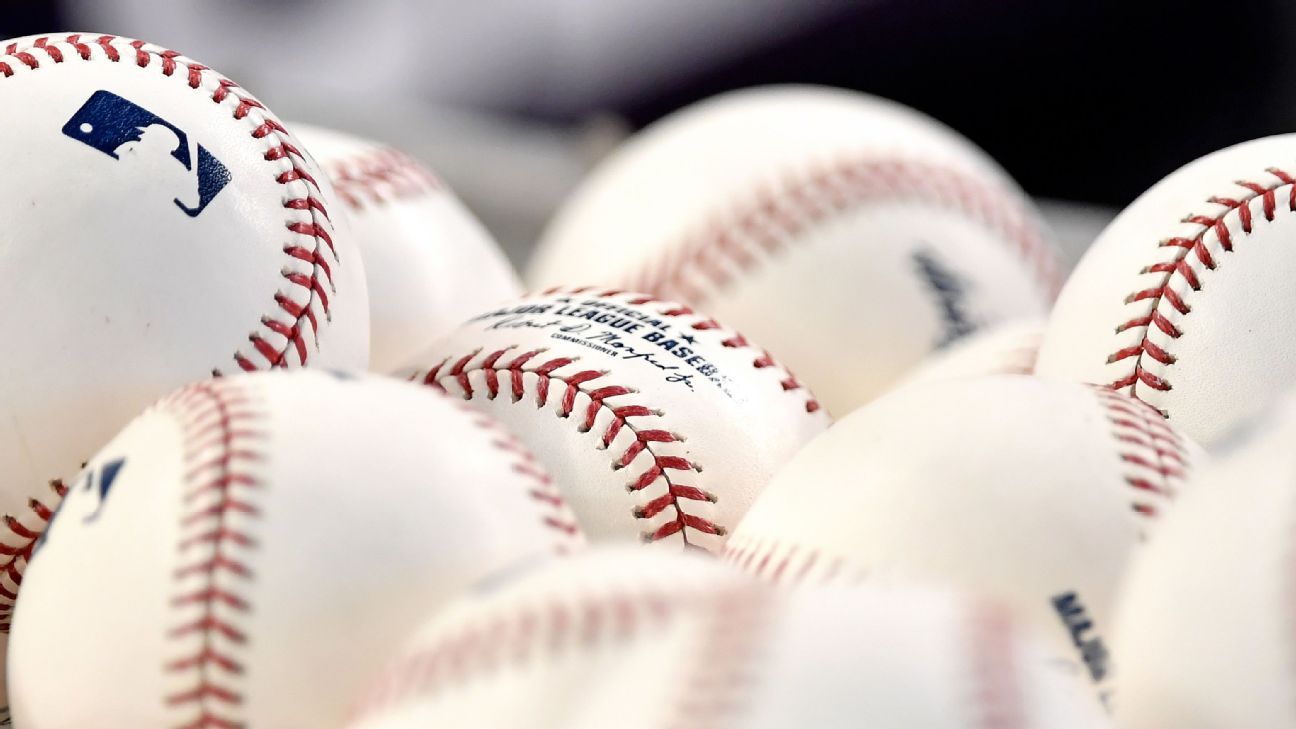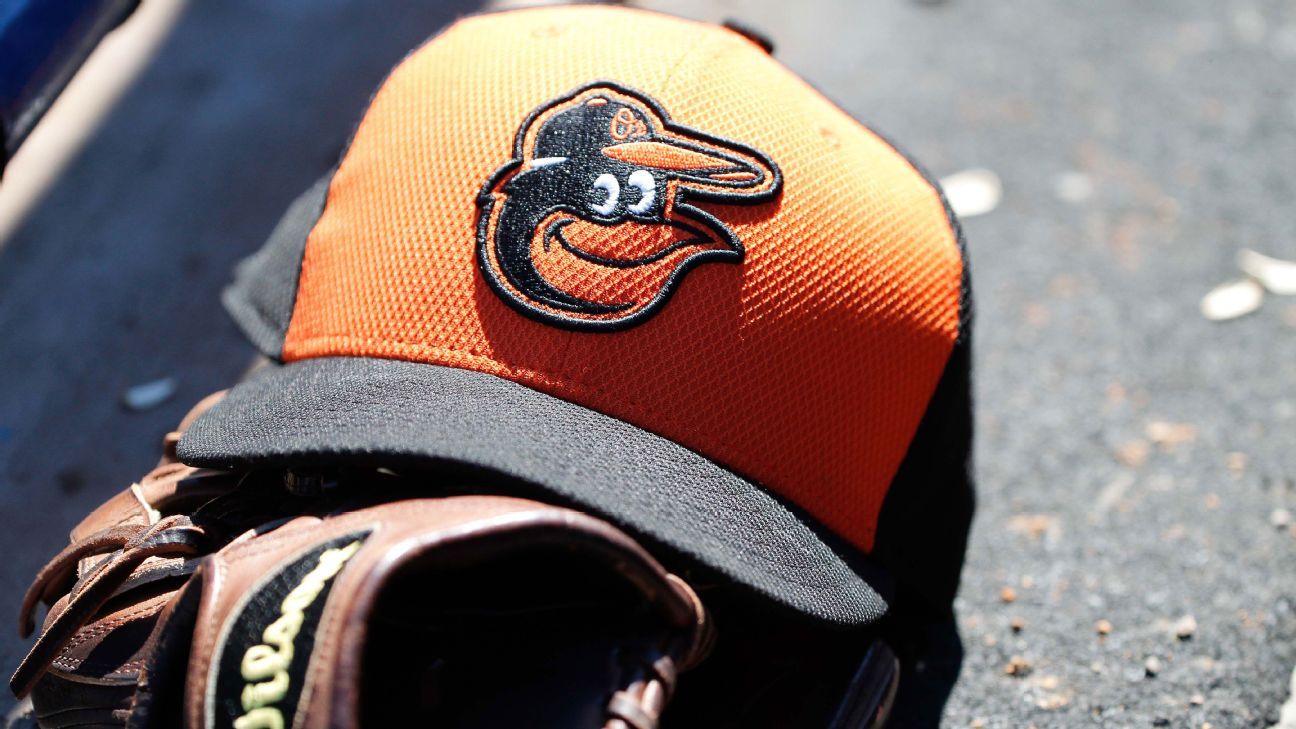
The Major League Baseball Players Association is mulling over a proposal by MLB to delay the start of the 2021 season, and if the union does not provide a counteroffer early next week, spring training is likely to start in mid-February as scheduled, sources familiar with the situation told ESPN.
After months of scattered dialogue, the parties find themselves in a similar position to last year when the coronavirus pandemic shut down the season: disagreeing over the proper path forward. The league's proposal to push back the start of spring training to late March and the beginning of the season to late April includes a 154-game schedule that would pay players their full 162-game salaries, according to sources.
The proposal concerns the MLBPA on multiple fronts, players and union sources told ESPN. With pitchers having ramped up to start spring training around Feb. 17, they are reticent to shut down and start again by the proposed March 22 spring training start for a season that would begin April 28, according to sources. Further, players believe language in the proposal would grant commissioner Rob Manfred power beyond what he currently has to cancel games and, accordingly, potentially cut into players' pay.
The league disagrees with that interpretation. While Manfred had the right under the March 26 deal struck by the sides in the wake of the pandemic's early days last year to cancel games or shut down the sport -- something he considered amid early outbreaks -- he never did so once the season began. The proposal, league sources said, is intended to protect MLB from a worsening national situation, whether it's a COVID-19 variant being resistant to the vaccine or an unexpected uptick in cases.
The language, according to sources, gives Manfred the right to act if government restrictions prevent more than five teams at once from playing, if travel is restricted or if "competitive integrity is undermined" by players sitting due to COVID-19. Both sides, sources said, would retain their rights to pursue legal action. The disagreement on the broadness of the language could be changed if the sides continue bargaining.
MLB's desire to delay the season, according to league sources, is based on the recommendation of health experts and the likelihood that doing so would enable the 2021 season to be held when COVID-19 cases have dipped -- particularly in Arizona, which currently has the country's highest rates and where half of the league holds spring training. Cases in Arizona and Florida have recently dropped, and health officials project they will go down even more between now and the proposal's start date.
The potential for an agreement is possible, but the animus and mistrust between the sides is deep enough that sources were dubious about the likelihood of a deal. Something as simple as the timing of the offer is a point of contention. League officials were frustrated at the union when in December it rejected the possibility of a delay unless players were paid for 162 games -- something the league believes it acceded to in its proposal. In messages sent Sunday by player representatives to the union's rank and file obtained by ESPN, they called the proposal this close to spring training a "tactic" by MLB.
The last deal the sides made led to months of back-and-forth as to when the 2020 season should start, and Manfred wound up implementing a 60-game season when they couldn't come to an agreement. Both sides accused the other of bad faith, and the detritus of those negotiations remains palpable today as baseball figures out what its 2021 season is going to look like.
The union's eight-player executive council and player representatives were briefed on the offer that was delivered Friday, according to sources, and were skeptical about the pathway to a deal. They believe, sources said, that because players are entitled to 162 games' pay by the collective bargaining agreement, the terms of the offer -- which would include expanding the postseason from 10 to 14 teams and adding the designated hitter to the National League -- do not offer enough to push back the season.
In the absence of an agreement, there are two possibilities.
The first, and likeliest, according to sources, would be for teams and players to show up at spring training sites on their report dates and proceed as scheduled. The other is that Manfred invokes the national-emergency clause in the collective bargaining agreement and suspends the uniform player contract -- a possibility but one that would guarantee the sides face one another in court, a prospect that's unappealing to both, according to sources.
MLB's desire to push back the season has been clear for months. Currently, there are nearly twice as many daily COVID-19 cases than there were July 24, 2020, when MLB's 60-game season began. The possibility of an outbreak affecting individual teams remains acute. The Miami Marlins and St. Louis Cardinals last year missed long stretches because of outbreaks and needed to cram doubleheaders into their schedules to near their full complement of games.
It's not just the fear of an outbreak that fuels the owners' desire to delay the season. Doing so would allow greater proliferation of the coronavirus vaccine and heighten the likelihood that fans go to stadiums -- and that local health officials allow a larger number of fans into stadiums. In discussions with the union, the league claimed it lost billions of dollars last season -- a figure that has not been verified. With regular-season, in-stadium revenues nonexistent in 2020, revenues unquestionably were down.
MLB's frustration with the reaction to what it believed to be a reasonable compromise was palpable Sunday. Discussions with the union have been scattershot, and at this juncture, two players said, it's likely too late in the process to come to an agreement. While the players said they recognize a delay could be pragmatic, doing so when some players are already in spring training cities -- and all of them have housing they would need to cancel, likely costing thousands and even tens of thousands of dollars -- would be impractical.
"We're ready to play," one player said. "The NFL is playing. The NBA is playing. The NHL is playing. Colleges are playing. Why shouldn't we play?"
The NBA shortened its season by 10 games in early November -- about three weeks before training camps opened and six weeks before its first games were played. The NHL cut its season by about one-third. Both were coming off shortened seasons that ended later than usual. MLB's season ended on time after an expanded postseason, something the league would like to implement again.
The union has expressed skepticism, fearful that expanding the playoffs would have a negative effect on the free-agent market because teams would be likelier to play for a win total in the 80s instead of the 90s. The league, and team executives, disagree, arguing that the expanded postseason -- in this case three wild-card series in each league -- is better for the sport's long-term health. In the proposal, MLB guaranteed an $80.9 million pool for players who participate in the postseason.
Getting to that juncture, of course, is the imperative, and the league believes a delay makes it likelier to occur -- and likelier that players will play the scheduled games to receive their full salaries. Absent an agreement, the expanded playoffs might well be off the table until 2022, and the universal DH, seven-inning doubleheaders and a runner starting on second base in extra innings would be up in the air.















 Phone: (800) 737. 6040
Phone: (800) 737. 6040 Fax: (800) 825 5558
Fax: (800) 825 5558 Website:
Website:  Email:
Email: 






